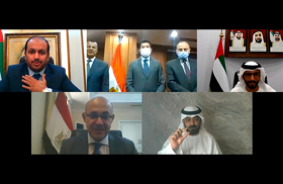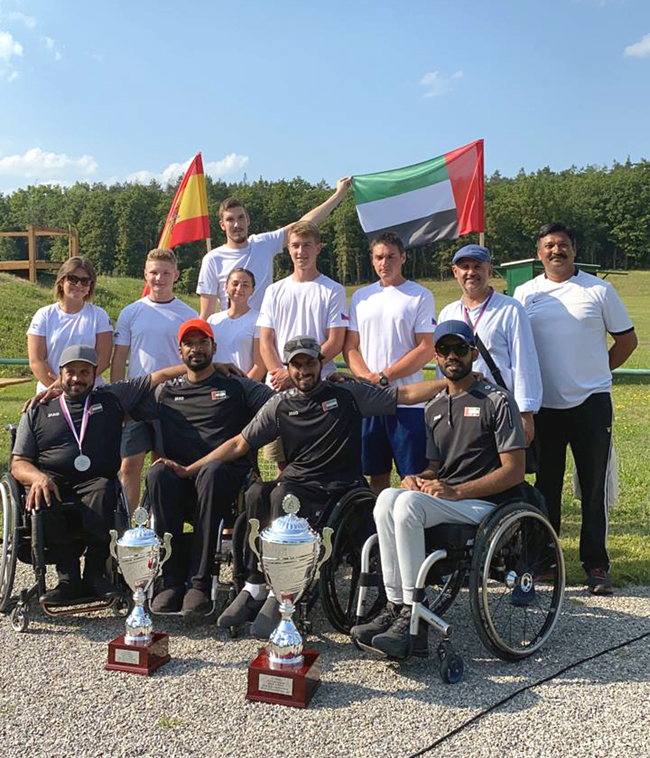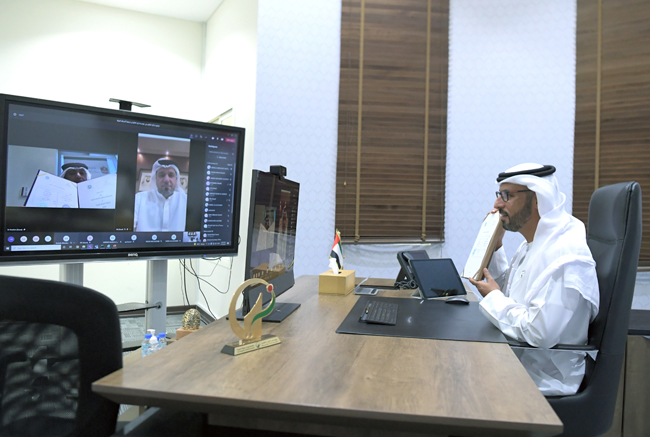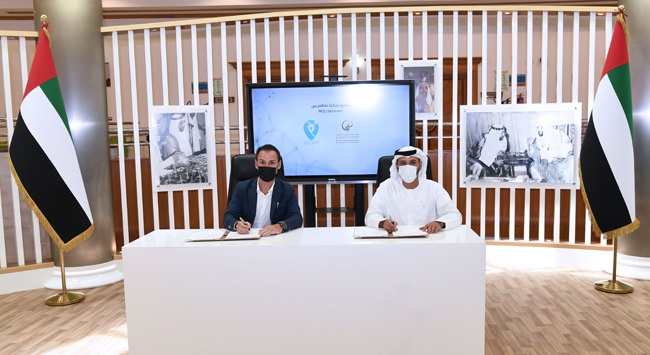Zayed Higher Organization qualifies six trainers for people of determination in cooperation with the Crown Prince Foundation of the Kingdom of Jordan

Zayed Higher Organization qualifies six trainers for people of determination in cooperation with the Crown Prince Foundation of the Kingdom of Jordan
Zayed Higher Organization for People of Determination organized the latest initiative as part of the "Bridges of Hope" project; providing three days of specialized training, from 20 to 22 September, delivered via remote visual communication programs. The training was provided by certified trainers from “Zayed Higher" to six participants in the Hashemite Kingdom of Jordan in cooperation with the Crown Prince Foundation. The course content was delivered in an interactive way through remote video communication, with the aim of equipping the trainees with skills necessary to best support parents of people of determination in the Kingdom.
The program was organized in coordination with the Crown Prince Foundation in the Kingdom of Jordan, in implementation of the terms of the joint memorandum of understanding signed by the two entities. The memorandum was signed with the aim of empowering people of determination and promoting their social inclusion. It also aims to create a sustainable society for people of determination, based on the social responsibilities of the entities, ensuring the transfer of knowledge and provision of support from the entities and their specialist employees to the parents and families of people of determination at every opportunity.
The program included three workshops, the first of which focused on educational and training programs for individuals with intellectual disabilities during the Coronavirus/Covid-19 pandemic. The training workshops provided clarification of instructions for dealing with people of determination in terms of physical, cognitive, emotional and social characteristics. The training course also detailed the implementation of educational and training programs for people with intellectual disabilities by family members at home during the pandemic through the use of specialized programs and ways to apply them, whether they are a curricula or levels of training.
The second workshop focused on habitual disorders in childhood and adolescence, said Zainab Azeem, senior specialized teacher in the organization: “The workshop presents disorders that children may experience during childhood, continuing into adolescence. Behavioral repetition can lead to habitual behavior that can be engaged in subconsciously by the child. An example of one such habit in children and adults is nail biting, noting that these habits can develop until they turn obsessive and can harm the child psychologically and physically and remain with the child even into adulthood. She explained that the causes of these habits were discussed, whether psychological, social or physical, and then the most prominent habits were presented, including finger sucking, nail biting, involuntary urination and sleep disorders.
The third workshop, entitled “Teach Me How to Communicate", was presented by specialized teacher Sheikha Salem Al Kaabi: “The workshop dealt with communication skills through images using the PECS program, which is an effective set of alternative and supportive communication interventions for individuals with Autism Spectrum Disorder, as well as those with developmental disabilities. The PECS communication system does not require complex or expensive materials, and trainees were taught how to prepare age-appropriate content for the PECS user. Trainees were also taught about the different stages of PECS and how to transition from one stage to another successfully.
She points out that PECS is a highly effective program for people with Autism Spectrum Disorder, as it has been proven effective in developing verbal, non-verbal and social communication skills for children with Autism Spectrum Disorder, as well as in the development of self-care, sensory, emotional and motor skills.
SOURCE





